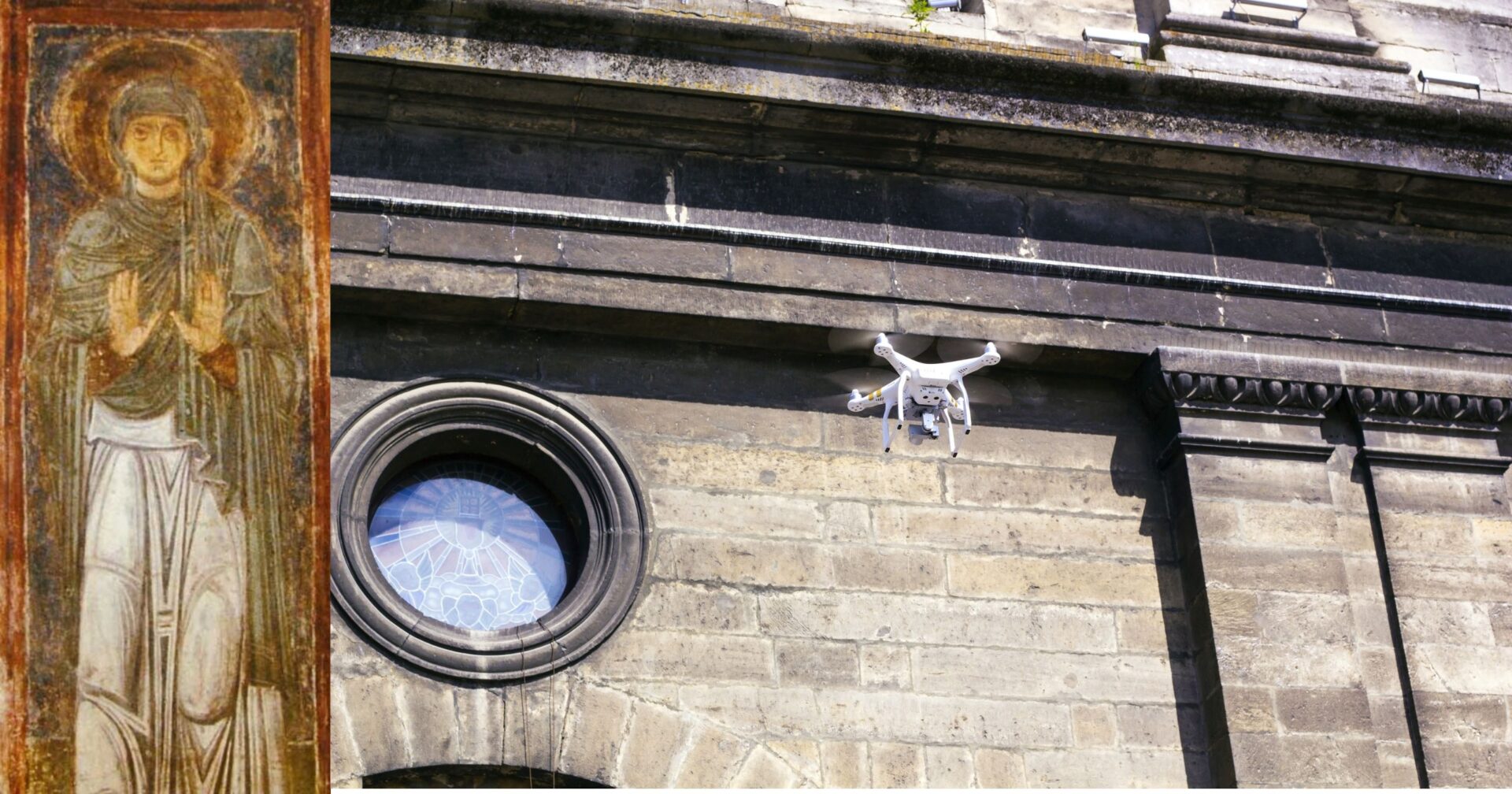As Catholics, we pray for the intercession of the saints and angels in Heaven, so that they may pray for us on our behalf. Saints can be venerated as the Heavenly advocate and special intercessor for a wide variety of patronages – even robots!
That’s right. Saint Macrina the Younger, a nun from the early days of the Catholic Church – 1642 years ago – philosophized about the existence of robots on her deathbed.
Saint Macrina was exceptionally pious, known for her sanctity and asceticism throughout her life. Living a chaste and humble life, she devoted her time to prayer and the spiritual education of her younger brother, Saint Gregory of Nyssa.
In 379, Saint Macrina was on her deathbed at her family’s estate in the modern-day eastern Black Sea region of Turkey. Even when dying, she continued her life of sanctity, refusing a bed and instead choosing to lie on the ground.
She had a lengthy deathbed conversation with Gregory, what he later composed into a “Dialogue on the Soul and Resurrection” to commemorate her life.
In one of their conversations, Saint Macrina philosophized about early “robots” – automata made by “machinists” of their time, and if humans were just natural automata that think they think, or if we are something more, a soul.
Gregory
But what if… someone were to say.. that in these elements… a certain force… effects these… operations… by a purely natural effort of their own… such… as we often see produced by the mechanists…when the piece of mechanism sounds in its resonant part it mimics a human voice. Suppose, I say, we were to affirm that all this was produced as well in the organic machine of our natural bodies…?
Macrina
If it were possible to ascribe such wonders, as the theory of our opponents does, to the actual constitution of the elements, we should have these mechanisms building themselves spontaneously; the bronze would not wait for the artist to be made into the likeness of a man, but would become such by an innate force… But if none of these results are produced spontaneously by elemental force, but, on the contrary, each element is employed at will by artifice; and if artifice is a kind of movement and activity of mind, will not the very consequences of what has been urged by way of objection show us Mind as something other than the thing perceived?
For this, she was ascribed the patronage of robots and roboticists. Saint Macrina the Younger, pray for us!















[…] Did you know there is a patron saint for robots, who talked about them on their deathbed over 1500 y… […]